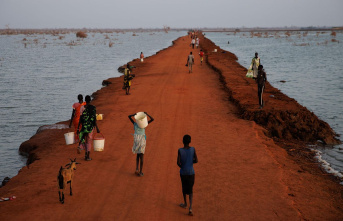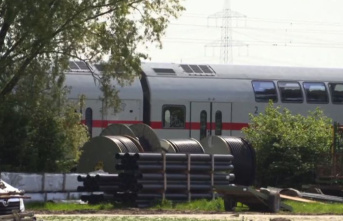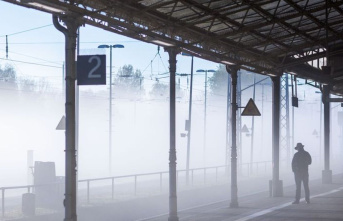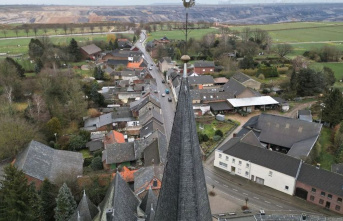The edge of legality. These are the ways large European energy companies operate to balance the need to comply with sanctions imposed by Russia for the invasion Ukraine and continue to generate business from gas imports from "Putin territory".
After almost becoming dependent on Russia's oil, the European Union moved in these circumstances in recent weeks. Europe now finds itself in a difficult position. It is forced to search for alternative suppliers of crude oil and gas, taking advantage the summer weather before winter sets in. How is this possible? The turning point in reality was the Russian invasion of Ukraine. The problem of energy addiction is not new.
1998/2005
Gerard Schroder, the former German chancellor is a great example of the accumulation of decisions that has led Germany and Europe to create the great umbilical chord that unites them with Russia. With all the political wind in his favour, Schroder became intimate with Vladimir Putin, a newcomer at the Kremlin, during the period of economic growth. Jose Maria Vinals (director of the Master's program in International Relations at IEB) points out that relations between the two countries have evolved towards mutual dependence and stability since the fall of Berlin Wall. This was Berlin's historic policy of "Wandel durch Handel" (changes through trade in its literal translation from German). This means that Berlin created business with Moscow in order to appease Russia and to attract it into the Western orbit through energy exports to EU.
In 2002, Russian President Vladimir Putin met with Gerard Schoder, German Chancellor. / REUTERS
German Chancellor Angela Merkel, and Russian President Vladimir Putin in 2017. / REUTERS
Many European and German politicians saw that the three-minute applause was dedicated to Putin, who was just recently arrived in Moscow. It was September 25, 2001. It was just two weeks since the attacks on the United States. Putin explained in German that democracy and freedoms were Russia's "key objective in domestic policy". He also noted that the military budget was now lower than the social spending. He was able to control the large oligarchs that owned the energy corporations and put order in the sector. This allowed him to get the support of the entire country for the strategic decisions that would be made in the future. Gonzalo Escribano is the director of the Energy and Climate Program at the Elcano Royal Institute. He believes that Russia's dependence on Russia is a mistake, as the European energy market has many energy islands and no common position.
Video.
Just days before Schroder's defeat against Angela Merkel in the 2005 German election, the Social Democratic chancellor had already laid the foundations to build Nord Stream 1. This was the first pipeline to transport gas directly from Russia through the Baltic Sea to Germany. It also avoids the need to cross other territories like Ukraine and Poland. This means that you don't have to worry about intermediaries geographically, politically, or economically. Three weeks after stepping down from the chancellorship Schroder was elected chairman of Nord Stream AG's shareholders' meeting. This consortium was responsible for building and operating the gas pipeline he had personally approved. Later, he joined the Rosnefr board. Later, he was a member of the executive board of Rosnefr, the Russian oil company.
Europe: Import of Russian Gas
In 2021, the percentage of total imported natural gaz
80% to 100%
60% to 79%
40% to 59%
5% to 39%
Below 5%
gas pipeline network
RUSSIA
GERMANY
Fuente: Eurostat
Europe: Import of Russian Gas
In 2021, % of all imported natural gas
80% to 100%
60% to 79%
40% to 59%
5% to 39%
Below 5%
gas pipeline network
RUSSIA
GERMANY
Fuente: Eurostat
Europe: Import of Russian Gas
In 2021, the percentage of total imported natural gaz
80% to 100%
60% to 79%
40% to 59%
5% to 39%
Below 5%
gas pipeline network
NORD STREAM 1Y2
RUSSIA
KINGDOM
UNITED
YAMAL
SOYUZ
GERMANY
FRANCE
TURK STREAM
ITALY
SPAIN
TANAP
Fuente: Eurostat
Import of gas
russian in europe
SWEDEN
In 2021, the percentage of total imported natural gaz
FINLAND
NORWAY
80% to 100%
60% to 79%
40% to 59%
5% to 39%
Below 5%
gas pipeline network
RUSSIA
ESTONIA
NORD STREAM 1Y2
LATVIA
YAMAL
LITHUANIA
KINGDOM
UNITED
SOYUZ
POLAND
GERMANY
REP. CZECH
SLOVAKIA
FRANCE
HUNGARY
ROMANIA
ITALY
TURK STREAM
BOSNIA
PORTUGAL
BULGARIA
SPAIN
TANAP
TURKEY
GREECE
Fuente: Eurostat
These moves made the former chancellor the first German lobbyist to enter Russia. Vice versa. His actions elicited so many reactions, that even his party, the SPD was critical of him. Merkel, his successor brought a lot of change, but his decisions remained the same as Putin's. His financial arrangements were mostly favorable: the large German industry was guaranteed natural gas and was very affordable. He was leaving Europe to the horses, however.
2005/2011
Since the start of the war in Ukraine, the great fear among Europeans is that Russia will make a simple gesture that could cripple the economy. It's possible, even if she doesn't receive the 63,000 million euros she received for exports of this raw materials in the first two month of war. This threat is not immediate. It comes from far away. The president of Russia has been moving with lukewarm in some cases and direct in others since last summer, warning of the things he can do.
This reality has been known by Europeans for almost a whole year. This dependency is almost as addictive as addictive dyes in energetic terms. According to data from Gas Infrastructure Europe, today's EU energy reserves are 32%. Jose Maria Vinals says that this figure is "very far away from the 80% goal that guarantees the Union's energy independence." This is why the Commission has created contingency plans to search for other sources of supply.
In 2021, a gas depot in Urengoy (Siberia) was set on fire. / AFP
This reality has been repeated for many years. Although symbolic closing of the Russian gas tap was reflected in many other seemingly spontaneous movements, it has great relevance. Moscow has employed tactics to reduce its supply. Moscow has used unexpected interruptions, sporadic flames, and sudden shortages in warehouses to reduce supply.
2011/2021
The Nord Stream, if it's about umbilical cords... the Nord Stream is the great link point that has caused so much headaches in the recent years in relation between Germany, Russia, and the EU... And even the United States. Olaf Scholz (current chancellor) has decided to stop the final part of the project. This was the start-up the parallel gas pipeline which would have more than doubled the capacity of Russian gas arriving to Germany via the Baltic without any intermediary. . This issue is so important that it was even included in discussions on sanctions against Moscow. Washington was not aware of Russia's ability to directly access German territory in a greater degree.
Vyborg
Ust-Luga
NORTH
STREAM 1
NORTH
STREAM 2
Start
Vyborg
(Russia)
Start
Ust-Luga
(Russia)
Building
2010-2012
Building
2018-2021
Capacity total annual
Capacity total annual
55
55
Millions of cubic meters
Millions of cubic meters
Length
Length
1,224
km
1,230
km
Final
Greifswald
(Germany)
Final
Greifswald
(Germany)
Approval
End has been suspended
Source: Self-made
Vyborg
Ust-Luga
Greifswald
NORD STREAM 2
NORD STREAM 1
Start
Ust-Luga
(Russia)
Start
Vyborg
(Russia)
Building
2018-2021
Building
2010-2012
Capacity total annual
Capacity total annual
55
55
Millions of cubic meters
Millions of cubic meters
Length
Length
1,230
km
1,224
km
Final
Greifswald
(Germany)
Final
Greifswald
(Germany)
Final approval was suspended
Source: Self-made
FINLAND
Vyborg
Nord Stream 1
Ust-Luga
SWEDEN
Nord Stream 2
RUSSIA
LATVIA
LITHUANIA
Greifswald
BELARUS
POLAND
GERMANY
UKRAINE
NORD STREAM 2
NORD STREAM 1
Start
Ust-Luga
(Russia)
Start
Vyborg
(Russia)
Building
2018-2021
Building
2010-2012
Capacity total annual
Capacity total annual
55
55
Millions of cubic meters
Millions of cubic meters
Length
Length
1,230
km
1,224
km
Final
Greifswald
(Germany)
Final
Greifswald
(Germany)
Final approval was suspended
Source: Self-made
NORD STREAM 1
NORD STREAM 2
Start
Vyborg
(Russia)
Start
Ust-Luga
(Russia)
FINLAND
Vyborg
Nord Stream 1
Building
2010-2012
Building
2018-2021
Ust-Luga
SWEDEN
Nord Stream 2
RUSSIA
LATVIA
Capacity total annual
Capacity total annual
LITHUANIA
Greifswald
BELARUS
55
55
POLAND
GERMANY
Millions of cubic meters
Millions of cubic meters
UKRAINE
Length
Length
1,224
km
1,230
km
Final
Greifswald
(Germany)
Final
Greifswald
(Germany)
Final approval was suspended
Source: Self-made
Already built, but whose certification has been stalled due to non-compliance with European regulatory procedures. The NS2 doubles its capacity and avoids transiting through Ukraine, a traditional gas transit nation. He means that kyiv loses income and is more vulnerable to Moscow. The Nord Stream is actually one of the greatest weapons in this war. It is also a double-edged sword. Putin can also reduce gas exports via other channels. For example, Russia can send more gas to Germany than Germany, and Putin can cut back on gas exports through the Yamal pipeline (the one that runs through Ukraine). This happens in winter when Russia's gas reserves are at their lowest levels in recent years, and the price is high.
According to the Kremlin, Nord Stream 2 will benefit all European consumers. At the height of price rises in December, Russian President Vladimir Putin stated that Gazprom would increase its supply. This caused overheated markets to see a rapid drop in prices. Putin repeatedly stated that Europe would see lower gas prices if Nord Stream 2 was commissioned.
Image of the Nord Stream 2 pipeline for gas on the Russian side. /REUTERS
Alternatives to gas passing through Ukraine, which is a territory half way between Russia and Eastern Europe, have also caused tension in the relationship between Germans, Ukrainians, and others. Because of his connections with the Nord Stream, Volodymyr Zelensky, Ukraine's president, declined to be visited in Kiev by Frank-Walter Steinmeier in April. The "error" in his appreciation for having, as a minister, defended the necessity of that project was recognized by the German president a few weeks back. Steinmeier served as Minister of Chancellery under Gerhard Schroder (Social Democrat), between 1999 and 2005. He was then Minister of Foreign Affairs under Angela Merkel (conservative), between 2005 and 2009. Also between 2013 and 2017. Gonzalo Escribano is the director of the Energy and Climate Program at the Real Instituto Elcano. He believes that Russia should not have been so dependent on it. According to Escribano, countries such as Germany and Austria have been affected by Russia's high dependence on Europe. Escribano insists, "That's why it is like this now." He points out that it is difficult to solve a problem which has been ongoing for many years and is now solved in just a few months.
2022
After years of insinuations, and recent months of more or fewer veiled threats, the opening of the conflict in Ukraine has changed all of that. Russia was sanctioned by the US and EU; Moscow responded by closing the tap. Gas prices on international markets rose sharply from the time the invasion began. It was something they had been doing since last summer as war approached. It was February 24, 2022. The first battalions were heading towards Kiev, at a time when the international market was highly volatile. The price of gasoline rose 60% to 130 euros/Mwh. It was already a record. Gas prices soared as Russian threats and war became more apparent. It cost more than 220 euros/MWh, which led to record prices for electricity in Spain.
Initialy, Germany didn't react in unison to the war with its European partners. She disagreed. She only began to make some movements slowly. Olaf Scholz finally announced that he would invest 100,000 million euros in defense. He also warned Russia that war was "catastrophic" for their interests. This was a departure from the decades-old 'Wandel durch Handel’ policy that had been so successful for the Germans for decades. In April, the Foreign Ministry made a more drastic decision and decided to temporarily nationalize Gazprom's German subsidiary to secure gas supplies. It is now the German government agency that supervises electricity networks (Bundesnetzagentur) and takes provisionally control of the subsidiary. The control of the subsidiary will remain in place until September 30, 2022. Gazprom had attempted to transfer the subsidiary to a Saint Petersburg-based company in recent days. This was seen as an attempt to avoid nationalization by the German authorities.
Sede de la firma alemana Gazprom, en Berlin. / REUTERS
Given the evolution of the war and its weaknesses, Germany began to fill the massive Rehden gas storage unit, abandoned by Gazprom by Russia to protect itself against the possibility that Moscow would cut off gas supply.
Gas tank "The Astora", in Rehden, Germany. /REUTERS
However, the effects of Europe's dependence upon Russia go far beyond Germany. The latest addition to the list of European countries whose supplies of gas have been cut off completely by Russia is Finland. This was due to Russia refusing to pay their ruble payments system. Two days earlier, the Finnish and Swedish ambassadors at NATO submitted the applications for both countries to join NATO. The Kremlin views this as a blow to which they threaten to respond. The Russian gas cutting to Finland joins that already experienced by Poland and Bulgaria.
2022
The great Western powers have imposed severe economic and financial sanctions against Russia since the start of the war. The goal was to submerge the Russian economy so that it could withdraw from Ukraine. Three months after the invasion began, Russia isn't having the worst time. At least, not yet. Despite the economic harm these decisions have caused, Inflation in Russia reached 17.3% in March. This is the highest level of inflation since 2002. The International Monetary Fund predicts that consumer prices will rise by as much as 8.7% this year. Jose Maria Vinals also points out that "the closing of multiple industries, particularly automobiles, has shown us that European sanctions have an effect on Russia's economy, even though it is not the expected effect". The main source of financing for Russia's economy is still the export of energy. This has been estimated at around 200,000 million dollars this year. The successive sanctions have gradually reduced the Russian energy sector's capacity, in an effort to reduce the country's dependence on energy as a source of financing.
Russian trade surplus
Imports of different types and
Exports to the rest of the globe (in millions of euro)
From January through March
22,500
58,200
2021
2022
Annuals
160,000
2021
82,000
2020
148,000
2019
Gross domestic product
2.0%
-2.7%
4.7%
-8.8%
2019
2020
2021
2022
Estimated
Source: Self-made
Russian trade surplus
Comparison of imports and exports to the rest of the globe (in millions of euro)
From January through March
22,500
58,200
2021
2022
Annuals
160,000
2021
82,000
2020
148,000
2019
Gross domestic product
2.0%
-2.7%
4.7%
-8.8%
2019
2020
2021
2022
Estimated
Source: Self-made
Russian trade surplus
Different imports and exports to the rest of the globe
(in millions of Euros)
From January through March
Annuals
2021
2022
2019
2020
2021
22,500
58,200
148,000
82,000
160,000
Gross domestic product
4.7%
2.0%
2019
2020
2021
2022
-2.7%
-8.8%
Estimated
Source: Self-made
Putin is also trying to ensure that relations with Europe will be different from what they were before February 24, 2019. Sergei Lavrov, the Russian Foreign Minister, visited China in April to improve his relations with China. Both men indicated that they would continue to build their strategic partnership and discuss global issues together. Moscow is seeking the support of its largest trading partner in order to defend itself against the international sanctions. It also did so in Turkey and India, which have important ties to Moscow. India will be exporting a large portion of the gas Europe is no longer receiving. Lavrov even contacted Algeria, a strategic partner in energy matters where the issue about Western Sahara is important in this new global energy order.
Economic partners
Russia has increased relations with certain countries
RUSSIA
CHINA
86,000
More oil per day than last year
1,000 barrels
INDIA
40%
Since the war, there have been more purchases of crude oil
TURKEY
45%
Turkey receives 45% of its natural gases from Russia and 70% of its wheat from Russia. There are also 4.7 million tourists in Turkey, which is 19% of all visitors.
EGYPT
70%
Russia and Ukraine
Provide 70%
Egypt receives approximately 5% of its grain intake each year. They are their primary supplier.
Source: Self-made
Economic partners
Russia has increased relations with certain countries
RUSSIA
CHINA
86,000
More oil per day than last year
1,000 barrels
INDIA
40%
Since the war, there have been more purchases of crude oil
TURKEY
45%
Turkey receives 45% of its natural gases from Russia and 70% of its wheat from Russia. There are also 4.7 million tourists in Turkey, which is 19% of all visitors.
EGYPT
70%
Russia and Ukraine
Provide 70%
Egypt receives approximately 5% of its grain intake each year. They are their primary supplier.
Source: Self-made
Economic partners
Russia has increased relations with certain countries
RUSSIA
CHINA
TURKEY
86,000
More oil per day than last year
45%
Turkey receives 45% of its natural gases from Russia and 70% of its wheat from Russia. There are also 4.7 million tourists in Turkey, which is 19% of all visitors.
1,000 barrels
EGYPT
70%
Russia and Ukraine
Provide 70%
Egypt receives approximately 5% of its grain intake each year. They are their primary supplier.
INDIA
40%
Since the war, there have been more purchases of crude oil
Source: Self-made
Economic partners
Russia has increased relations with certain countries
CHINA
INDIA
TURKEY
EGYPT
86,000
More oil per day than last year
RUSSIA
40%
Since the war, there have been more purchases of crude oil
45%
Turkey receives 45% of its natural gases from Russia and 70% of its wheat from Russia. There are also 4.7 million tourists in Turkey, which is 19% of all visitors.
70%
Russia and Ukraine
Provide 70%
Egypt receives approximately 5% of its grain intake each year. They are their primary supplier.
1,000 barrels
Source: Self-made
Sergei Lavrov, Russian Foreign Minister, and Abdelmadjid Tebboune the Algerian President were in May / EFE
2022-
Europe is now moving after years of nearly hidden dependency revealed by the war. Gonzalo Escribano from the Elcano Royal Institute points out that "rationing of energy next winter is not something to be dismissed." "There will be countries that have a very difficult time," he says. He believes that, if they don't have regasification plants to receive methane tankers gas and if the Russian gas pipeline is cut, "this situation won't be fixed in a few weeks." He says that they will fill their stocks even at the cost of gold and wait for winter to be mild in their analysis of Europe's energy future.
The European Union is facing a climate dilemma. It wants to reduce its dependence on Russian imports of fossil fuels. It is difficult to achieve in the short-term, especially if 27 countries want to adhere with the European Green Pact (or the 'Green Deal'). According to the European Commission, Russia exported approximately 45% of all the gas consumed by the bloc in 2021. According to the European Commission, nearly a third of all oil consumed by the 27 countries is Russian, and 46% of coal was imported from Russia. Russia's influence on European energy supplies is even more impressive when you consider that over 90% of European gas and oil is imported.
Europe's Regasification Network
EU countries
Terminal for LNG regasification
RUSSIA
GERMANY
SPAIN
Fuente: Eurostat
Europe's Regasification Network
EU countries
Terminal for LNG regasification
RUSSIA
KINGDOM
UNITED
GERMANY
UKRAINE
FRANCE
SPAIN
ITALY
Fuente: Eurostat
Europe's Regasification Network
EU countries
Terminal for LNG regasification
RUSSIA
KINGDOM
UNITED
Baltic Sea
POLAND
GERMANY
UKRAINE
Atlantic Ocean
FRANCE
Black Sea
SPAIN
ITALY
TURKEY
GREECE
Mediterranean Sea
Fuente: Eurostat
Network of regasifiers
Europe
SWEDEN
FINLAND
EU countries
Terminal for LNG regasification
NORWAY
RUSSIA
ESTONIA
LATVIA
Baltic Sea
LITHUANIA
KINGDOM
UNITED
NETHERLANDS
POLAND
BELGIUM
GERMANY
Atlantic Ocean
UKRAINE
FRANCE
CROATIA
Black Sea
PORTUGAL
ITALY
SPAIN
TURKEY
Mediterranean Sea
GREECE
Fuente: Eurostat
Gas arriving through regasification vessels is a major issue. Problem is, not all countries have the points at the ports where the liquefied petroleum gas (LNG), arrives to be processed and introduced into gas pipelines. Spain is, for instance, the country with 25% of all EU regasification plants, which is well ahead of the rest. It has very limited connection capacity via the Pyrenees to the rest of Europe in order to provide gas for them.
Barco metanero de gas en Sudafrica. REUTERS
All countries are working together to ensure supply and not depend upon Russian gas. It is difficult, but it is possible. Germany, for example, does not have LNG import terminals. However, it has two projects in development: the Brunsbuttel terminal or a Stade facility. Uniper canceled plans to build a floating LNG terminal in Wilhelmshaven that would have been 10 billion cubic meters per year. Instead, it will be used to import hydrogen.
This project may now be reenergized. Gonzalo Escribano from Elcano Royal Institute points out that it is now shown "how Germany had done wrong", but he also recalls how France has "hindered the interconnection to Spain" and how Spain "has not been proactive in implementing photovoltaic sun" in recent years.
According to the Council, Commission, and European Parliament, gas reserves in the EU countries will need to be at 80% capacity by next winter. They will then try to get to 85% according to the provisional agreement. Brussels indicated that the regulation will improve the EU's supply security in the current geopolitical environment. It will ensure that EU gas storage capacity are full before next winter and is shared among Member States in a spirit solidarity.
The agreement stipulates that gas tanks on community territory must be filled to 80% before next winter, and to 90% the year after that. However, the Member States will work together to make sure that the filling level for the current year is at 85%. This was reported by the Council of the EU (the institution that represents the countries).
EFE - Coal power plant in Datteln, Germany /
What are the options available to each country in order to reduce their dependency? It all depends. Spain, for instance, is clinging to its vast network of regasification facilities. The United States is Spain's largest gas supplier, accounting for over a third. Italy is seeking assistance in Algeria to help it build a pipeline. This is due to its high dependence on Russia. All the member states then move one by one.
Germany is a champion of green energy and has even reactivated a coal-fired power plant despite the environmental pollution caused by this decision in a country that has closed all its nuclear power stations. Germany boasts 45 GW of coal-powered capacity. One part of this power has been shut down, but another is kept in reserve to ensure that the country has enough. Berlin believed the supply was assured, but it wasn't until recently that it realized this after the Russian incessant campaign to reduce them over the months.












